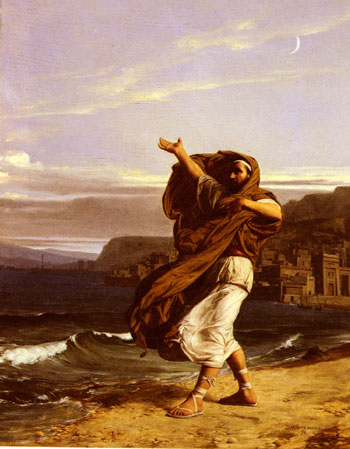Rhetorics: From Classical Rhetoric to Modern Communication
Module Tutors
Dr Caroline Petit
Rhetoric (the art of speaking well, according to Quintilian) pervades all aspects of ancient life (education, public life, politics, literature...) and informs the ways in which the ancients think and express their ideas and their conceptions of the world around. It is also one of the most enduring areas of ancient knowledge and a key component of literary criticism throughout the ages, a topic that is still taught in modern universities: in an age of intense communication ("spin", even) in politics, trade, science and campaigning more generally, studying the ancient roots of "rhetoric" invites critical reflection on the world we live in and the possibilities to maintain or negotiate freedom despite bad faith, demagogy and the so-called "alternative facts".
The syllabus will explore in turn (1) the place of rhetoric in ancient society, (2) the power of rhetoric in ancient literature, (3) rhetoric in question (is rhetoric about truth or deceit?), and finally (4) the non-classical or post-classical takes on ancient rhetoric (non-Classical traditions; modern theories of argumentation, literary criticism, communication).
SUMMER READING SUGGESTIONS
If you fancy reading a bit on the topic before we start in October, please see below - a couple of introductions to rhetoric, an anthology of historic speeches, and some suggestions of ancient texts.
- A few selected titles to begin with:
MacArthur, B. ed. (1995) The Penguin Book of Historic Speeches
L. Pernot, Rhetoric in Antiquity, 2005 (tr. from the French)
R. Toye, A very short introduction to rhetoric (especially introduction + chapter 1: “from the Greeks to Gladstone”)
*** there are many introductions to the history of rhetoric to pick from – feel free to try other titles. I have selected Pernot and Toye as very accessible and informative ones.
If you feel adventurous: explore Michele Kennerly (ed), A New Handbook of Rhetoric: Inverting the Classical Vocabulary, 2021. I especially recommend her introduction, addressing both the history of the field and the prevalent concepts it has been reliant on. Kennerly’s book asks fundamental questions about how Greek rhetoric is/should be.
- Suggested ancient texts (all accessible through Loeb online):
Plato, Gorgias. Mexenes
Aristotle, The Art of Rhetoric
Cicero, Speeches (any speech, really! Perhaps one of the Philippics, as we will discuss those in term 1)
Quintilian, Institutio oratoria (esp. books I and II, about education and oratory)
Dio Chrysostom, speech 21, On beauty (a rhetor’s discussion of beauty in art)

